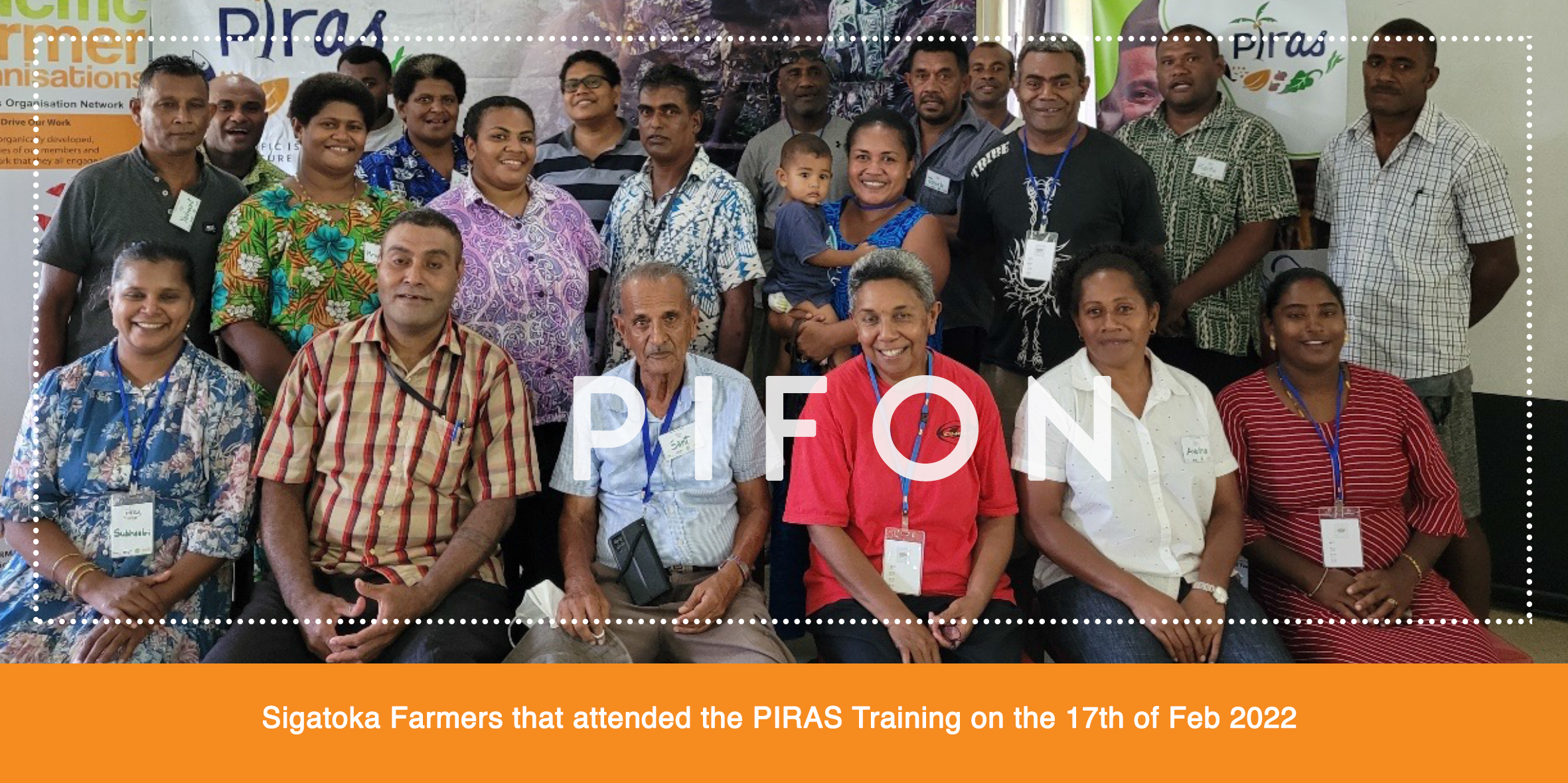M A R C H 2 0 2 2
Friday 25
Sigatoka, Fiji – The nursery management training for farmers of Fiji’s Western Division was recently completed following a series of workshops over a four-week period starting in February.
While attending the first phase of training in Sigatoka, Sant Kumar – the nursery owner and managing director of Bula Agro Enterprise – spoke on the importance of using the right potting media, identifying quality seeds and controlling pests and diseases.
“During the pandemic most new farmers lacked the knowledge on ways to manage vegetable seeds and seedlings from sowing right to the harvesting stage.”
Mr. Kumar explained that many new farmers were unsuccessful because they were new to the areas of soil health, seeds and seedlings, pest and diseases which he added is critical to farming.
This was a growing concern as many had lost their jobs due to the pandemic and farming was one of the doors many knocked on to keep food on the table.
Following the ongoing requests from farmers experiencing issues on seed growth and productivity, Phase 1 of the PIRAS Training was developed with farmers now equipped with the proper training on :
- (1) Open Pollinated Seeds
- (2) Composting
- (3) Soil Preparation (Potting Media)
- (4) Raising Seeds and Seedlings
- (5) Pest & Disease Management
- (6) Plant Propagation (Marcotting and Grafting)
PIRAS is a joint partnership between the Pacific Islands Farmer Organisations Network, the Australian Government and the International Fund for Agricultural Development (IFAD); the initiative will directly target rural households vulnerable or potentially vulnerable to nutrition insecurity, while also maximising potential and driving productivity in food and nutrition security, safe post-harvest handling, local food preservation and functioning local markets.
Speaking at the Lautoka Training, Sub Regional Coordinator for Pacific at International Fund for Agricultural Development (IFAD) – Sakiusa Tubuna said : “As farmers you need to take ownership of the project and implement what new and improved things you learn from the trainings you attend.”
With a lot of interest in farming, he stressed the need for proper training as rising issues in climate change faced ongoing disruption to food availability, access to food and affecting food quality.
It is envisioned that PIRAS will assist 110 farmers along the tourism belt of Sigatoka to Tavua who were affected by the pandemic with technical trainings and advise, market linkage and capital items needed for expansion/improvement.

